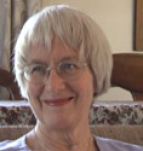
Interview 16
She cared for her husband at home for 7 years. When things got really difficult he spent 18 months in residential care, after which she was able to bring him home again with the additional support of either a live-in carer, or two live-in carers in rotation, working alternate weeks.
Carer is wife of a man who first developed Alzheimer’s disease when he was 50. He was diagnosed in 1991 and treated with Exelon. They have two children. She and...





